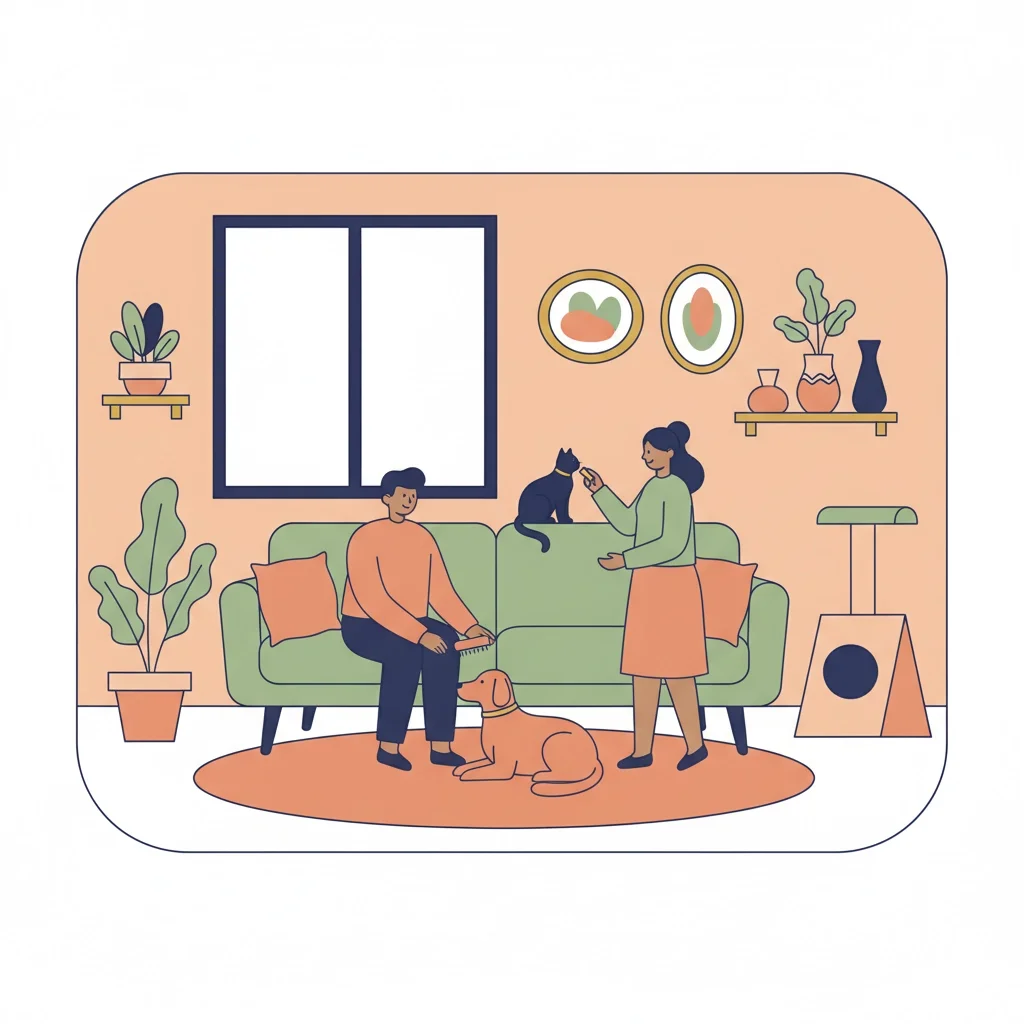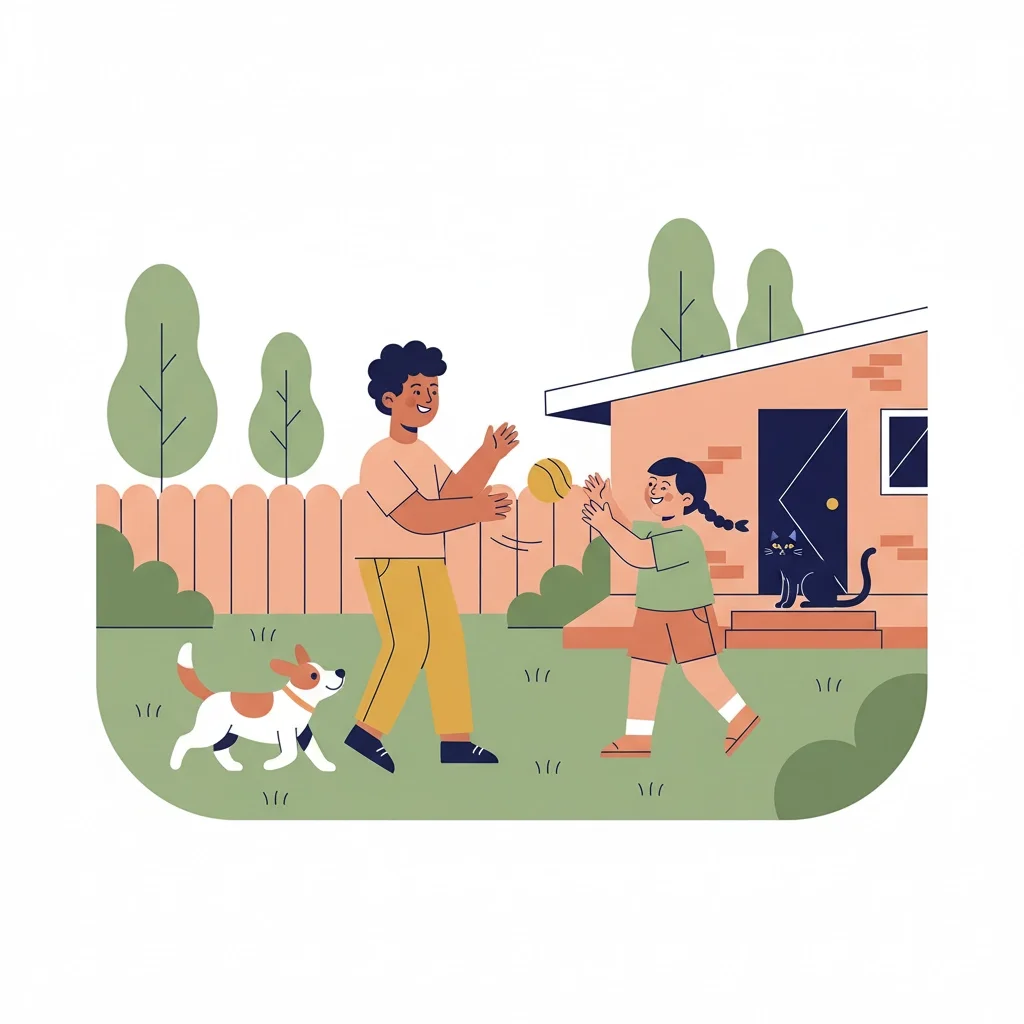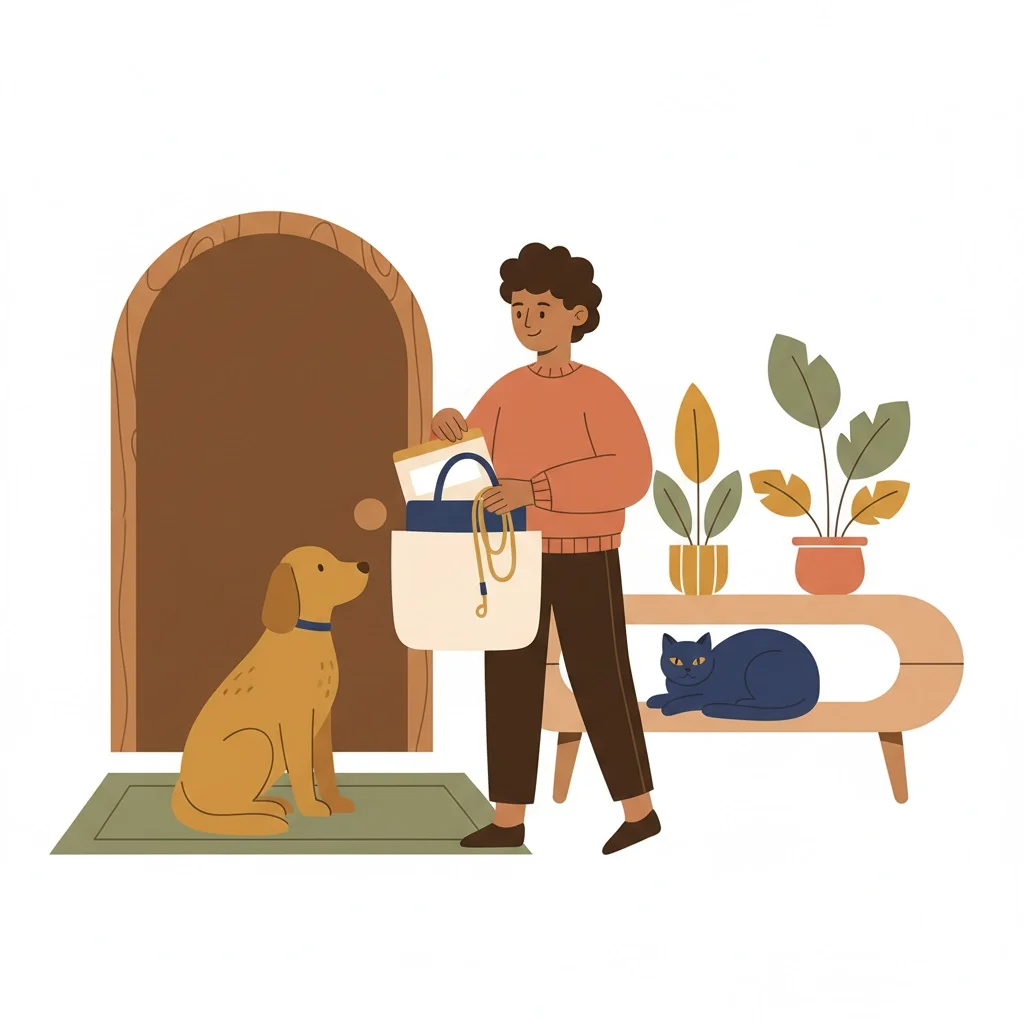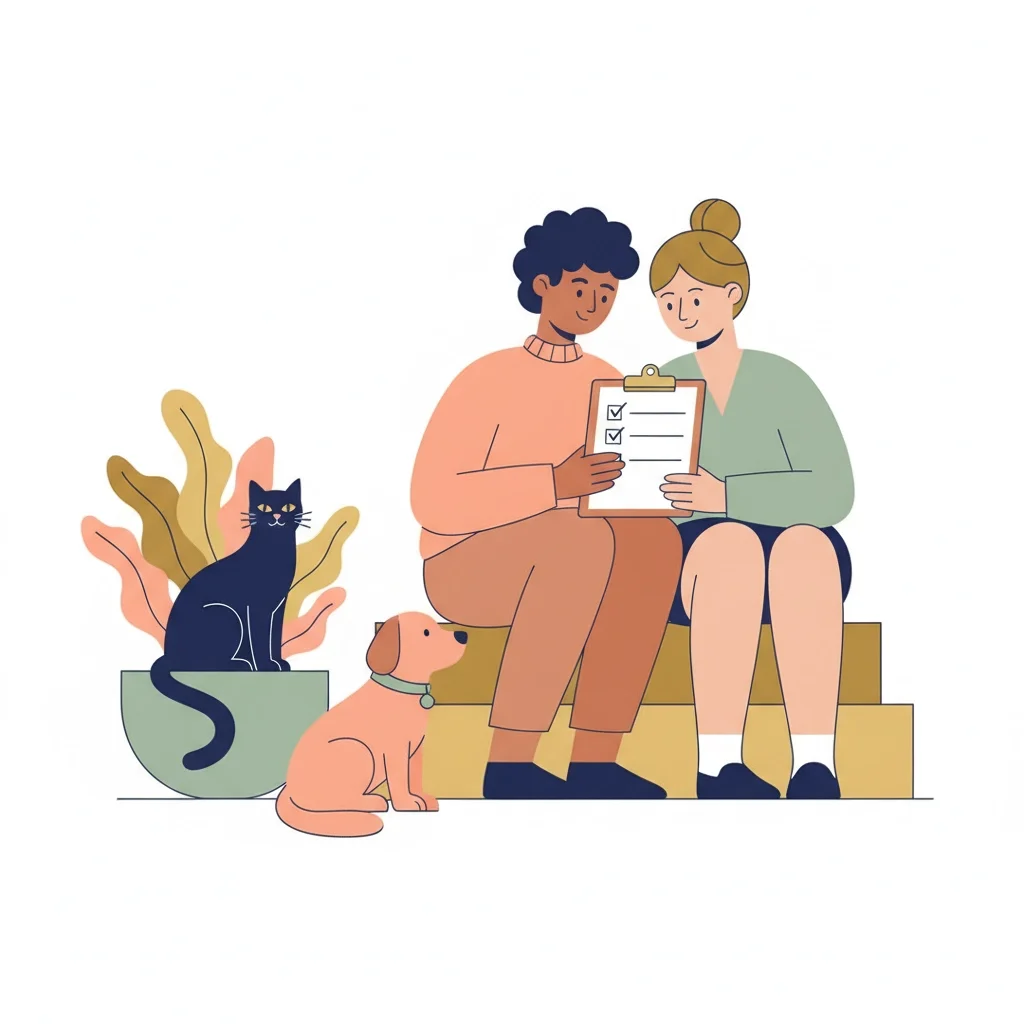
 Rich Gittings
Rich Gittings
Oct 20, 2025

Divorce is heartbreaking for everyone involved, including the four-legged members of your family. At North Carolina Legal Services, we regularly help families facing these questions: What happens to your dog, cat, or other pets when you and your spouse separate?
Here's the reality we share with North Carolinians every day: North Carolina law treats pets as property. In court, your dog is in the same legal category as a chair or a car. That may feel wrong, but understanding this reality is the first step to protecting your bond with your pet.
This guide explains how judges actually handle pets in divorce, what evidence matters, and the most effective ways to ensure your furry family member stays safe.

To file for an absolute divorce in North Carolina, you and your spouse must live "separate and apart" for at least one continuous year, with one of you having lived in NC for at least six months.
When it comes time to divide marital property, pets are handled through a process called "equitable distribution." North Carolina law doesn't recognize "pet custody" like it does for children, only who owns a pet and has the right to possess it.
The key distinction: If you owned your pet before marriage, it's likely your separate property. If you acquired the pet during marriage, it becomes marital property subject to division.
At North Carolina Legal Services, we often see couples surprised by this legal framework. While it may feel harsh, understanding how equitable distribution applies to your pet helps you prepare effectively.

When dividing marital property, judges aim to make a fair split that gives each spouse their share of the jointly accumulated wealth. Here's what surprises most people: most pets have little financial value in court. When determining "value," courts look at resale value, not emotional bonds. The exceptions are working animals, show dogs, or expensive breeds with documented resale value.
Since financial value of a pet is often minimal, judges focus on practical factors:
Primary Caregiving Evidence:
Financial Investment:
Ownership History:
Family Considerations:
Documentation is critical. Families across the state tell us they wish they had kept better records of their pet care responsibilities.
The single most effective way to secure your pet's future is reaching an agreement with your spouse and recording it in a separation agreement.
Why Agreements Work: Because pets are property, judges almost always honor what both parties agree to voluntarily. A comprehensive agreement can address:
Once signed and incorporated into your divorce, this agreement carries the force of a court order.
Gathering Your Evidence: Start collecting documentation now:

If you're experiencing domestic violence, you can request that the court include your pet in a Domestic Violence Protective Order (DVPO). Under N.C. Gen. Stat. § 50B-3, judges may grant you possession of the animal and forbid the other party from harming it.
The law recognizes that abusers often threaten or harm pets to control their victims. If you're in this situation, don't hesitate to contact your local domestic violence prevention agency for assistance in planning for your safety. Legal Aid North Carolina may provide you with a free attorney to help obtain a protection order. The safety of both you and your pet matters.
At North Carolina Legal Services, we recommend seeking legal guidance when:
We help families, including their furry members, create enforceable agreements that protect what matters most. When informal arrangements aren't enough, we ensure your rights and your pet's safety are protected.
Under North Carolina’s equitable distribution rules, a pet is your separate property if:
Judges look for evidence of intent and ownership. Gift law can apply even if the pet was acquired during the marriage: if there is clear proof that the animal was gifted to you (not to both spouses), a judge may treat it as your separate property.
Practical examples of helpful proof:
Organization tips:
Because pets are legally treated as property, judges have discretion when spouses disagree. They consider the “totality of the circumstances” to decide who should receive the pet. The goal is to understand the practical reality of who the true caregiver is.
Common factors judges consider:
How to tip the scales with evidence:
Judicial discretion is real. Clear, organized records help a judge see the full picture of your role and can make a decisive difference.
Can I get custody of my pet like I would for children? North Carolina doesn't recognize "custody" for pets. However, if you and your spouse agree to a custody-like arrangement in writing, courts will usually enforce it.
What if I owned my pet before marriage? That pet is likely your separate property. Keep adoption records, veterinary bills, and registration documents from before the marriage as proof.
What if we can't agree on who keeps our pet? The judge decides as part of equitable distribution, typically weighing caregiving history, financial investment, and practical considerations.
Is there "pet support" in North Carolina? No legal requirement exists, but you and your spouse can agree to share ongoing costs in your separation agreement.
Can I get a temporary order for my pet during the divorce process? Temporary property orders for pets are rare. If safety is a concern, a DVPO offers the most effective protection.
Who owns the pet if there is no agreement or equitable distribution case filed before the divorce is final**?** When the judge grants the divorce officially ending the marriage, if there is no agreement, previous court order, or a pending case about your pet then the person who has possession will assume sole ownership. This default rule applies to most of the personal property held by each party on the day the divorce becomes official.

Your pet isn't "just property" to you, but North Carolina law treats them that way. That's why documentation and proactive planning matter so much.
Here's what we recommend at North Carolina Legal Services:
At North Carolina Legal Services, we understand that pets are family members, even when the law sees them differently. We help North Carolinians create practical, enforceable arrangements that prioritize both legal requirements and your pet's wellbeing.
Whether you need help with separation agreements, domestic violence protection, or navigating property division, we're here to support you through this challenging time.
Contact us today to discuss your situation. We offer sliding-scale fees to make legal help accessible when you need it most.
Teachers, social workers, and community advocates: Please share this resource with families who might benefit from this information. Together, we can help North Carolinians protect their beloved companions during difficult transitions.
*DISCLAIMER: The purpose of this website is informational - no attorney-client relationship is created by using this website or reading this blog. No legal advice is intended. If you have questions about a current or potential legal problem, you should always contact an attorney directly for specific advice. Results described on this website are meant to describe the work and experience of our Firm. The uncertainty & risk inherent in litigation, as well as the specific individual details of each case mean that results or a particular outcome are never guaranteed. This website is provided "as is," without any warranty of any kind, express or implied.

Trust our friendly team for affordable, comprehensive legal services. Contact us today to resolve your legal issues and gain peace of mind.

